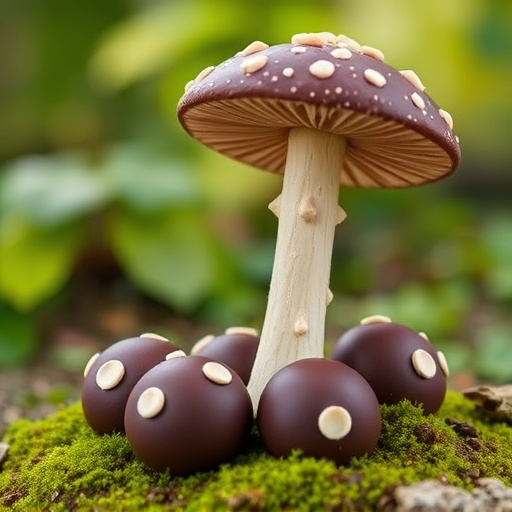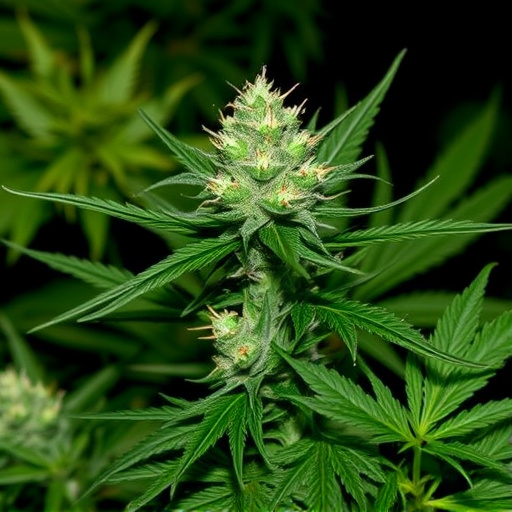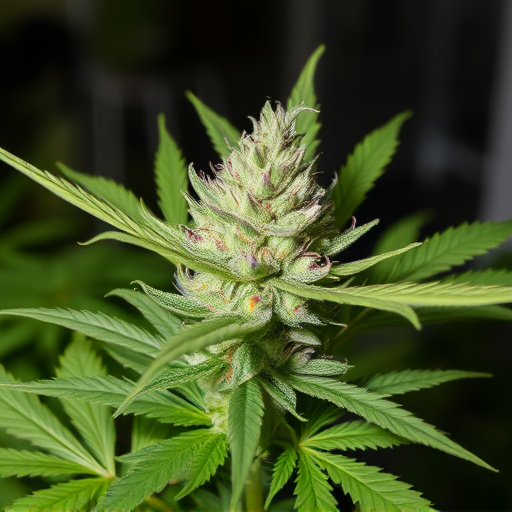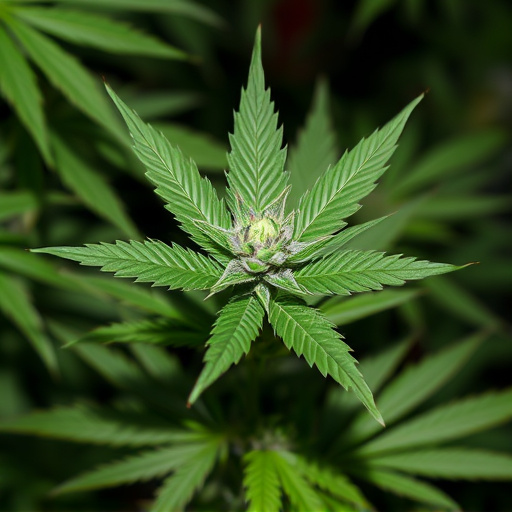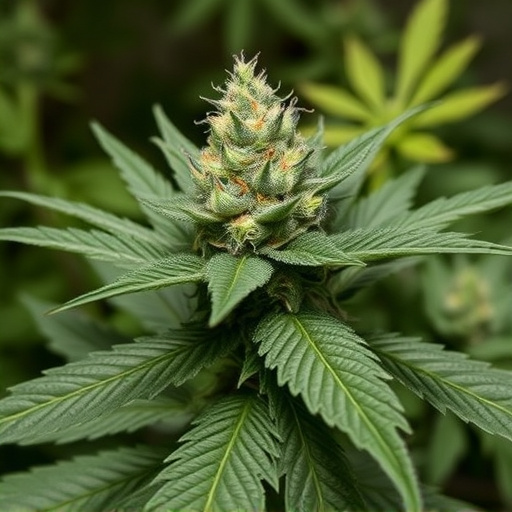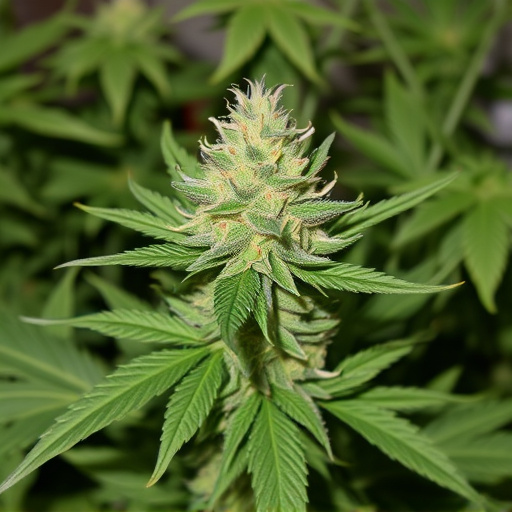Cannabis, rich in chemical compounds like THC and CBD, offers potential therapeutic effects, notably in alleviating mental health issues. Strains like Charlotte's Web and Granddaddy Purple, high in CBD, are popular for their balanced ratios. Indica and Sativa strains, with distinct effects on mood and anxiety, form the basis of modern cannabis therapy. However, using cannabis for mental health requires careful balance and professional guidance due to potential risks.
Can cannabis flower be a game-changer in managing mental health? This natural compound has sparked interest due to its potential therapeutic benefits. In this article, we explore how understanding cannabis compounds can improve mental well-being and delve into specific common weed strains known for their calming or energizing effects. We also navigate safety guidelines, dosage considerations, and potential risks associated with cannabis use, offering a comprehensive look at its role in mental health support.
- Understanding Cannabis Compounds and Mental Health Benefits
- Common Weed Strains and Their Therapeutic Properties
- Navigating Safety, Dosage, and Potential Risks
Understanding Cannabis Compounds and Mental Health Benefits

Cannabis contains a complex mix of chemical compounds, with the most well-known being tetrahydrocannabinol (THC) and cannabidiol (CBD). While THC is responsible for the plant’s psychoactive effects, CBD has gained significant attention for its potential mental health benefits. Research suggests that CBD may help reduce symptoms of anxiety, depression, and post-traumatic stress disorder (PTSD), offering a promising alternative to traditional medications.
Common weed strains known for their high CBD content, such as Charlotte’s Web and Granddaddy Purple, have become popular among individuals seeking relief from mental health issues. These strains are often used in medicinal settings due to their balanced THC-to-CBD ratios, which allow for potential therapeutic effects without the intense psychoactive experiences associated with higher THC levels. Understanding the unique properties of these compounds is crucial in navigating the potential mental health benefits of cannabis use.
Common Weed Strains and Their Therapeutic Properties
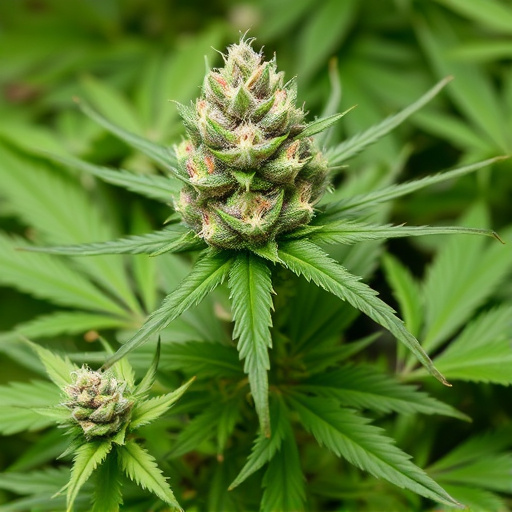
Cannabis has gained attention for its potential therapeutic benefits, and various common weed strains have been developed to target specific mental health concerns. For instance, Indica strains are renowned for their calming effects, making them popular choices for reducing anxiety and promoting relaxation. These plants contain cannabinoids like THC and CBD, which interact with the body’s endocannabinoid system to produce soothing sensations.
Sativa strains, on the other hand, are known for uplifting and energizing properties. They can be beneficial for treating depression and stimulating creativity. With a higher concentration of THC, these varieties offer a more invigorating experience compared to Indica. Many modern cannabis breeds are hybrid combinations, blending the desired traits of both types to create tailored therapeutic options for different mental health needs.
Navigating Safety, Dosage, and Potential Risks
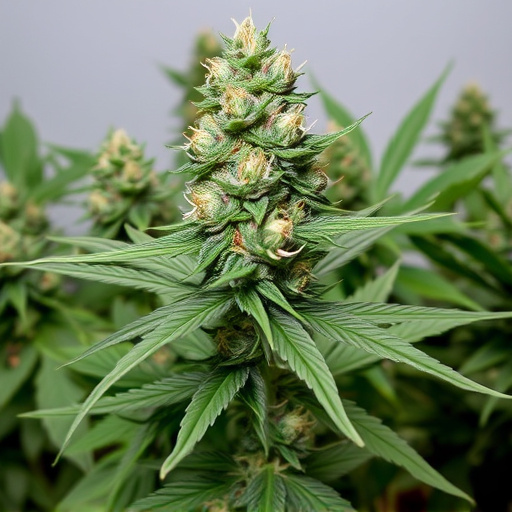
Navigating the safety and potential risks of using cannabis flower for mental health is a delicate balance. While many people find relief in common weed strains like Indica, Sativa, or their hybrids, it’s crucial to approach this with caution. Dosage plays a significant role; starting with low amounts and gradually increasing can help avoid adverse effects while allowing individuals to gauge their body’s response.
Potential risks include anxiety, paranoia, and sleep disturbances, particularly in those prone to psychotic disorders. The right strain, consumed responsibly, may offer benefits such as stress reduction and improved mood. However, it’s essential to consult with healthcare professionals before incorporating cannabis into any mental health regimen, especially for those with pre-existing conditions or taking other medications.
Cannabis flower, with its diverse compounds and varying strain profiles, offers potential therapeutic benefits for mental health. While research is still evolving, understanding specific common weed strains and their unique properties can empower individuals to navigate treatment options safely. By considering dosage, consulting professionals, and recognizing personal responses, cannabis may contribute positively to managing certain mental health conditions. However, it’s crucial to approach this with informed awareness of potential risks and individual variations.




